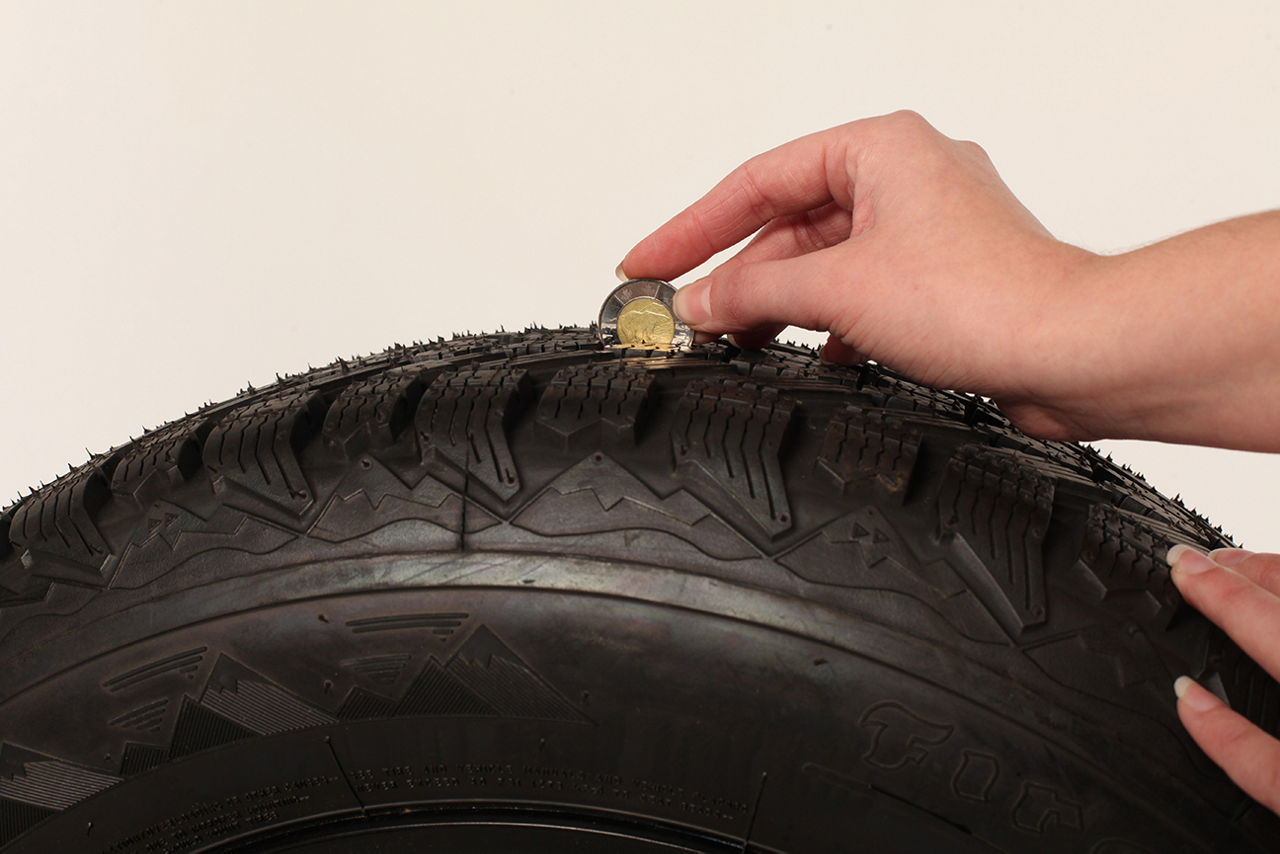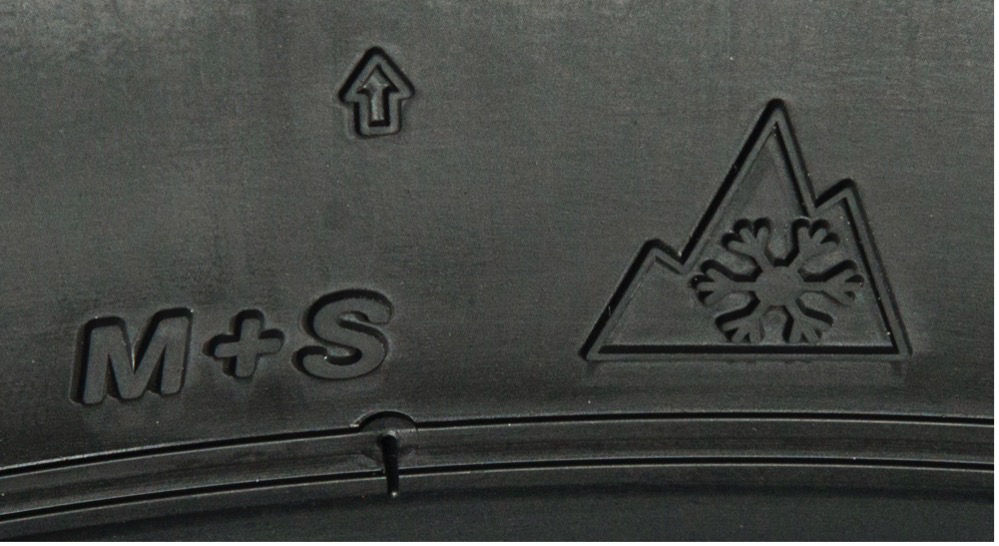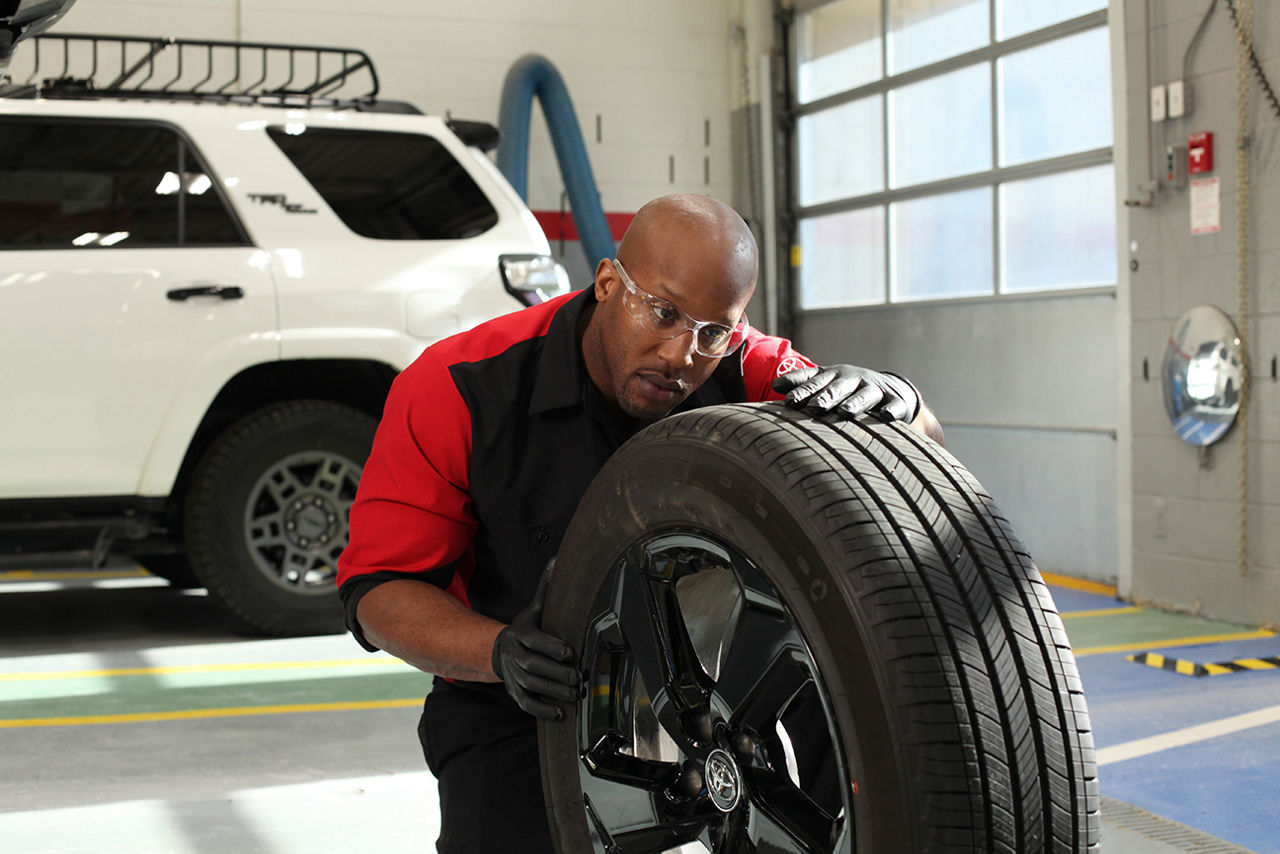Select a province & language
Entrance to this website assumes you have read and agree to these Legal Terms and Conditions and the Privacy Policy.
Entrance to this website assumes you have read and agree to these Legal Terms and Conditions and the Privacy Policy.
It’s almost that time of year – the temperature is starting to drop, days are getting a little shorter and the autumnal colours are making an appearance. The beginning of fall is a great time to ensure you’re making all the preparations you need for your vehicle to perform at its best throughout winter.

One key step in your winter prep should be switching to winter tires once the average daily temperature drops below 7oC or according to your provincial regulations – most routes in British Columbia require winter tires or chains from October 1 to March 31, and they’re legally required in Quebec between December 1 and March 15. Every year, when fall hits, Toyota University Trained Technicians often hear similar questions about winter tires. To give you the answers you need, here are the top 6 winter tire questions our experts are asked:
A: There are many variables that can impact how long your winter tires will last, most having to do with your personal driving habits. Though we can’t provide an exact lifespan, based on an average driving distance of 20,000–25,000 km per year, you’ll generally get at least 4–5 seasons out of a set of tires.

A: You can easily check your tire tread depth by inserting a toonie into a tire groove with the bear standing upright. If you see the top half of the letters or more on the silver rim, that means your tread is quite worn and it may be time for a new set. With 16 top tire brands to choose from, a Toyota expert can help you find the perfect set for your vehicle. Book a service appointment for assistance.
A: There are three main differences between winter tires and all-seasons, which explain why winter tires provide optimal performance on slippery and cold roads:

Remember, when it comes to any kind of driving, safety should always be your priority. Choosing the right tires for the season can help ensure a safe drive no matter the weather. Look out for tires branded with the three-peak mountain snowflake icon, as they’ll provide improved snow traction beyond standard all-seasons. If you’re searching for new winter tires for your vehicle, make use of our Tire Selector Tool to ensure you get the right tires at the right price.
A: The answer to this one is always a very straightforward “no”. When you mix tire brands, seasons, or use durations, it puts your vehicle at risk of fishtailing and can cause problems with both your braking and steering. Toyota Tire Experts are specially trained in helping you find the perfect set for your vehicle. By booking a tire changeover at your Toyota Dealer, you can trust that your vehicle will be running at its best on the right tires all winter long.
A: Storing your off-season tires in the proper conditions can make a difference to their longevity. The storage location you choose should be dry, away from direct sunlight and an appropriate temperature (ideally around 15oC or slightly below1). It can be tricky to find the right space to store your off-season tires, but Toyota has you covered. Select Toyota Dealers offer storage options to fit your needs. Have your winter tires stored, changed and replaced, all in one place.

A: With cold weather comes the potential for tires to lose pressure quicker, so we recommend monitoring your winter tire pressure more frequently than your all seasons. Toyota University Trained Technicians can help you check and correct your tire pressure if you need assistance.
To keep your vehicle performing at its best in winter and beyond, we also recommend you request a service appointment every 6 months or 8,000 km, whichever comes first.
When the cold weather creeps in, your Toyota Dealer has all the answers. From a tire changeover to a winter maintenance appointment and Toyota Genuine Parts like Winter Wiper Blades and Windshield Washer Fluid, visit a Toyota Dealership near you for help conquering winter driving.